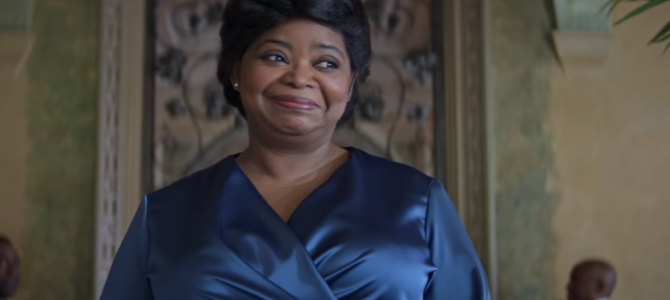In these quaran-times, most of us are anxious and yearning for human interaction. The coronavirus pandemic is leaving us all feeling a bit lonely and down. Netflix’s “Self Made: the story of Madame C.J. Walker” is the cure to uplift your spirits during these uncertain times.
The four-part docu-series follows the story of Sarah Breedlove, a poor washer-woman who creates a line of haircare and beauty products from the ground up. Through hard work and dedication, Breedlove creates the infamous C.J. Walker hair-care line — the first salon and hair products specifically targeting African-American women.
The docu-series showcases capitalism’s inherent and unique ability to uplift minorities. Here are three ways “Self Made” undercuts leftist arguments for a socialist and affirmative action based society.
1. Breedlove Was the First Self-Made Female Millionaire
Breedlove was the first self-made female millionaire in American history. She was not the first African-American self-made female millionaire, but the very self-made first female millionaire. Period.
The left constantly denies the ability of some racial groups to succeed and “pull themselves up by their bootstraps.” It’s why Democrats created programs such as “affirmative action,” which values racial identity over an individual’s skill set. The woefully ignorant problem with affirmative action is that it places racial minorities in a victimhood status and suggests that without special privileges from the government, minorities are unable to succeed.
“Self-Made” undercuts the left’s narrative by highlighting the unprecedented success of a woman born into slavery who rose above the criticism and hardship of being an African-American woman in 1908.
2. Competition Created And Fueled Madame C.J. Walker
In the docu-series, Breedlove is not the only entrepreneur creating and selling hair products for African-American women. The series focuses around a vengeful competition between Breedlove and her former hair stylist, Addie Malone. Malone was the first to create the line of haircare products that made Breedlove successful, but Malone’s company model was based around exclusivity and manipulative marketing.
Malone would not allow Breedlove to sell products for her because she said Breedlove looked like she had “just returned from the plantation,” and did not fit the stereotypical mold of beautiful.
While similar products were on the market for African-American women to purchase, Breedlove sold her products under the premise of inclusivity both in her beauty line and marketing strategy. To Breedlove, no one woman embodied her haircare products. Instead, they were built for anyone.
Only in a capitalist society can entrepreneurship flourish, and only entrepreneurship and competition could have created Walker haircare products. Not only did competition and capitalism create the Walker haircare empire, it also allowed multiple millionaires to flourish beyond just Walker.
In the series, Malone is portrayed as a villain left with nothing. In actuality, Malone was also a self-made millionaire and successful philanthropist and entrepreneur. The free market created not one, but two, very successful minority women in the early 20th century, when racism was rife in society.
3. Entrepreneurship Created Jobs for Women and Racial Minorities
The idea is simple — entrepreneurship thrives in a capitalist economy and is squashed in a socialist economy. After all, a socialist economy consistently discourages people from rising above mediocrity because the government overrides the market-driven value of a product or service.
Only because of entrepreneurship was Breedlove able to tap into an untapped market and create jobs for women and racial minorities. In the final episode of the series, women share their coveted positions as first-time saleswoman, factory floor women, and eventually CEOs.
The makeup industry, women, and racial minorities would not have been revolutionized as rapidly had it not been for these jobs and consequential success stories. These women exemplified that racial minorities and women have a place in business and entrepreneurship.
The left aims to undercut this narrative by promoting a socialist economy that would “equalize” us all. But racial minorities and women would not have found these same successes under an economic system that squashes creative ability.









